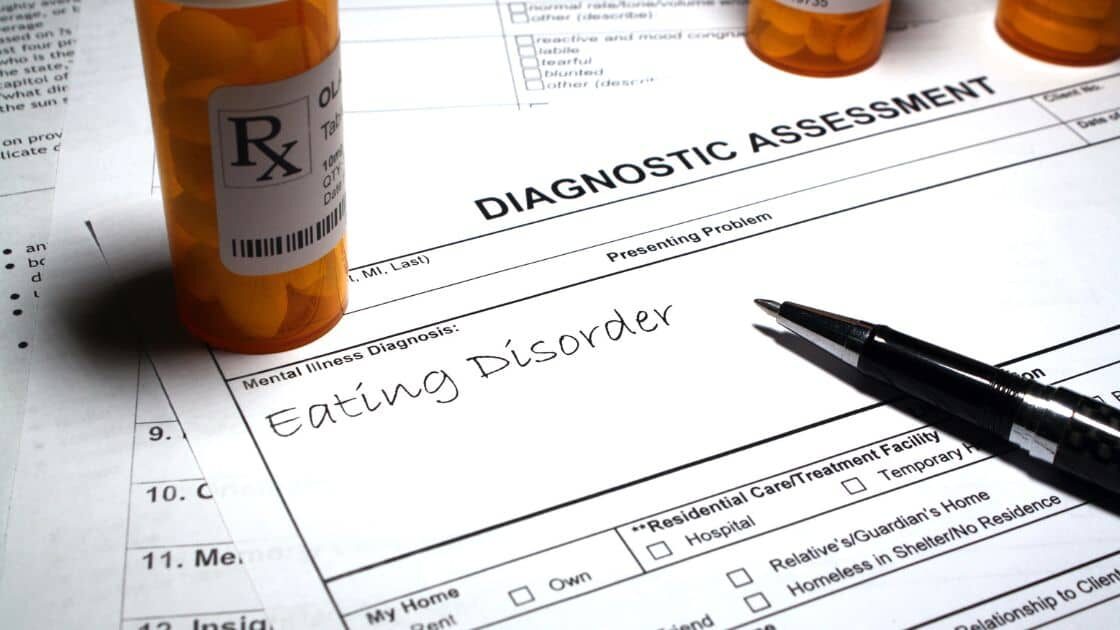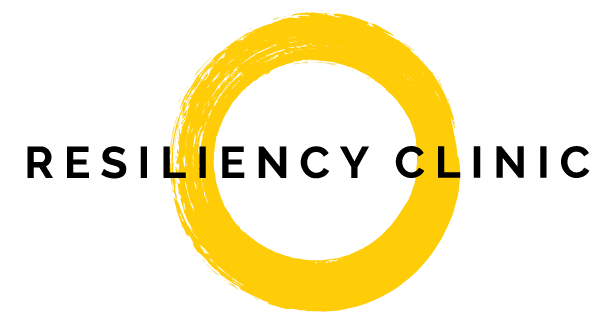Imagine the daily struggle of facing an invisible enemy within yourself, impacting your relationship with food and your self-image. Eating disorders are complex mental health issues that millions of people battle every day. Recovery is possible with the proper knowledge, professional guidance, and support. Let’s delve into the types, causes, and treatment options available and explore how ongoing care and support systems can be instrumental in achieving lasting recovery.
Key Takeaways
Eating disorders are serious mental health issues that require early understanding and intervention.
Treatment options for eating disorders involve a combination of therapeutic approaches, such as CBT, DBT, and FBT, tailored to the individual’s needs.
Support systems, including family, friends, and organizations like NEDA or ANAD, can provide invaluable resources in recovery from an eating disorder.
Understanding Eating Disorders
Eating disorders are serious mental health issues that involve unhealthy relationships with food, weight, and appearance. They can have severe implications on emotional and physical health, even becoming life-threatening if left untreated. Common types of eating disorders include anorexia nervosa, bulimia nervosa, and binge eating disorder.
Understanding the symptoms and seeking help early on can greatly enhance the chances of recovery with the right treatment and support.
Anorexia Nervosa
Anorexia nervosa is a disorder characterized by extreme weight loss, fear of weight gain, and a distorted body image. Those affected often have a warped perception of their body size and shape, viewing themselves as overweight even when they are dangerously underweight. This distorted body image can lead to extreme dissatisfaction with their appearance and the development of unhealthy eating patterns, such as excessive calorie restriction.
For recovery, it’s important to recognize these symptoms and seek help from a mental health professional.
Bulimia Nervosa
Bulimia nervosa is another eating disorder characterized by cycles of binge eating followed by purging behaviours to prevent weight gain. This disordered eating pattern involves individuals experiencing episodes of consuming large quantities of food, followed by attempts to rid the body of it through self-induced vomiting, excessive exercise, or the use of laxatives or diuretics. Eating disorder symptoms include psychological symptoms such as preoccupation with body shape and weight, low self-esteem, and feelings of guilt and shame.
Binge Eating Disorder
Binge eating disorder (BED) differs from bulimia in that individuals do not engage in compensatory behaviours such as vomiting or excessive exercise. Instead, they experience recurrent episodes of eating large quantities of food in a short period of time, often accompanied by feelings of guilt, shame, and distress.
The causes of BED are not fully understood, but evidence suggests that the following factors may contribute:
Genetics
Brain chemistry
Hormonal imbalances
Emotional distress
Low self-esteem
Body dissatisfaction
Recovery heavily relies on early diagnosis and appropriate treatment, such as cognitive-behavioural therapy or interpersonal psychotherapy.
Identifying Risk Factors
The development of eating disorders is believed to result from a combination of genetic predisposition, environmental influences, and psychological factors. Genetic research indicates that individuals with eating disorders may have a common set of genetic abnormalities, although further research is needed to understand the full extent of genetic risk factors.
Environmental factors, such as societal pressures, cultural ideals of beauty, media influence, and family dynamics, can contribute to body dissatisfaction and distorted body image. Additionally, psychological factors like low self-esteem, poor body image, perfectionism, and difficulty coping with emotions and stress may increase the risk of developing eating disorders.
Treatment Options for Eating Disorders

The road to recovery from eating disorders often involves a combination of treatment options tailored to the individual’s specific needs and circumstances. Depending on the severity of the condition, treatment can range from outpatient therapy to inpatient programs and residential treatment. Involving medical monitoring, psychotherapy, nutrition education, and, as necessary, medications is crucial in a multidisciplinary approach, regardless of the treatment setting.
We will now delve into the various treatment options and therapeutic approaches used to assist individuals in regaining control over their eating habits and restoring their physical and mental health.
Outpatient Therapy

Outpatient therapy for eating disorders involves regular sessions with a therapist who helps individuals address thoughts and behaviours related to the disorder. The objectives of outpatient therapy include:
Stabilizing recovery practices
Providing treatment for various types of eating disorders
Devising tailored treatment programs
Fostering balance and health in eating
Employing evidence-based strategies for treatment
Techniques such as cognitive behavioural therapy (CBT) and interpersonal psychotherapy (IPT) are commonly used in outpatient treatment for eating disorders.
Progress in outpatient therapy is gauged through progress and outcome monitoring. This involves periodically assessing and tracking indicators of improvement, such as:
Eating behaviours
Body weight
Psychological symptoms
Overall functioning
Inpatient Programs
Inpatient programs provide intensive care for individuals with severe eating disorders, with a focus on medical stabilization and the initiation of treatment. During inpatient hospitalization, the individual’s condition is stabilized, and necessary medical care is provided.
Day treatment or partial hospitalization programs offer a structured setting where individuals attend multiple hours a day, several days a week, receiving:
Medical care
Therapy
Structured eating sessions
Nutrition education
The duration of inpatient programs varies depending on the individual and the severity of the disorder, generally lasting for several weeks to a few months.
The effectiveness of inpatient programs is assessed through clinical assessments, monitoring of physical and psychological symptoms, and tracking of treatment outcomes.
Residential Treatment
Residential treatment offers long-term care in a structured environment for individuals with severe eating disorders. A typical day in a residential treatment program involves:
Therapy sessions
Group therapy
Meal planning and supervision
Nutritional counseling
Medical check-ups
Structured daily routines
These activities provide a supportive and structured environment for individuals to focus on their recovery and develop healthy eating habits and coping skills.
Residential treatment provides comprehensive care, 24-hour support, a structured daily schedule, peer support, a multidisciplinary approach, and a focus on long-term recovery.
Therapeutic Approaches to Eating Disorder Treatment
Various therapeutic approaches are used to treat eating disorders, each addressing different aspects of these complex mental health conditions. Some commonly used approaches in eating disorder treatment include:
Cognitive-behavioural therapy (CBT): This approach focuses on identifying and changing negative thought patterns and behaviours related to food, body image, and self-esteem.
Dialectical behaviour therapy (DBT): DBT combines elements of CBT with mindfulness techniques to help individuals regulate their emotions, improve interpersonal skills, and develop healthier coping mechanisms.
Family-based treatment (FBT): FBT involves the whole family in the treatment process to restore the individual’s weight and help them develop healthy eating habits. It emphasizes parental involvement and support.
Each approach offers unique benefits and can be tailored to the individual’s specific needs and circumstances to facilitate recovery and maintain long-term well-being.
Cognitive Behavioral Therapy (CBT)
Cognitive-behavioural therapy (CBT) focuses on identifying and changing thought patterns and behaviours related to eating disorders. This type of psychotherapy has been proven effective in treating eating disorders, particularly bulimia nervosa. CBT addresses core features of eating disorders, such as binge eating and purging behaviours, and helps individuals recognize and address negative thoughts and beliefs related to food, body image, and weight.
In addition, CBT teaches coping skills and strategies to manage triggers and cultivate healthier behaviours, making it an integral part of comprehensive treatment plans for eating disorders.
Dialectical Behavior Therapy (DBT)
Dialectical behaviour therapy (DBT) helps individuals manage difficult emotions and develop skills to change behaviours associated with eating disorders. It focuses on behaviours such as:
Binge eating
Purging
Dietary restriction
Compulsive exercise
Self-harm
DBT assists in managing these emotions by developing new coping and relationship skills.
DBT aids individuals in building healthier ways of addressing distressing emotions and relationship stressors by cultivating skills such as:
Mindfulness
Emotion regulation
Interpersonal effectiveness
Distress tolerance
This helps decrease their reliance on disordered behaviours as coping mechanisms.
Family-Based Treatment (FBT)
Family-based treatment (FBT) involves the family in the recovery process, particularly for children and adolescents with eating disorders. In FBT, parents assume responsibility for their children’s nutrition and work to help them reach a healthy weight. Over time, control of eating is gradually transferred back to the child. FBT has been proven effective in treating eating disorders, especially anorexia nervosa in adolescents, and is considered a first-line evidence-based treatment according to clinical guidelines.
FBT incorporates the family in the recovery process, thereby addressing any underlying family dynamics that may have contributed to the eating disorder’s development and creating a supportive environment conducive for the child’s healing.
Nutrition Education and Counseling

As they assist individuals in developing healthy eating habits and a balanced relationship with food, nutrition education and counselling hold a significant role in eating disorder treatment. Nutrition counselling involves a comprehensive, multidisciplinary treatment plan that may include:
Meal planning
Structured eating
Nutritional education
Food exposure and response prevention
Mindful eating
Promoting body acceptance and positive body image
The success of nutrition education and counselling in the treatment of eating disorders is measured by:
Improvements in nutritional knowledge
Changes in eating habits and attitudes
Weight restoration or stabilization
Overall improvement in physical and mental health.
Medications in Eating Disorder Treatment

While medications are not a definitive solution for eating disorders, they can be beneficial when combined with psychological therapy. Medications, such as antidepressants, can help regulate neurotransmitter levels in the brain, particularly serotonin, which can reduce the desire to binge and purge in individuals with bulimia, as well as aid in managing anxiety and depression often associated with eating disorders.
Medications to alleviate anxiety symptoms are also commonly prescribed as part of the treatment for eating disorders. Determining the most suitable medication and treatment plan for each individual necessitates collaboration with a healthcare professional.
The Role of Support Systems in Eating Disorders Recovery
In the recovery process, support systems like family, friends, and support groups are indispensable, offering encouragement, understanding, and accountability. Family members play a vital role in eating disorder recovery, providing support, understanding, and encouragement throughout the treatment process. Friends can also have a significant impact on recovery, offering love, encouragement, and understanding.
A positive support system can be an invaluable resource for individuals dealing with eating disorders, helping them feel less isolated, improve self-esteem, and maintain motivation throughout the recovery journey.
Ongoing Care and Relapse Prevention

Ongoing care and relapse prevention strategies are vital in maintaining recovery from eating disorders, as relapse is common. A personalized care plan is essential for relapse prevention, helping individuals recognize their triggers and develop strategies to avoid or manage them. By customizing the plan to the individual’s specific needs and goals it provides a guide for their recovery journey and increases their chances of sustaining long-term recovery or managing their condition effectively.
Given that managing an eating disorder can be a long-term challenge, ongoing care and support have become indispensable.
Eating Disorders Help: Resources and Organizations
Several resources and organizations offer help and support for individuals with eating disorders and their families. In Ottawa, Ontario, some of these include:
Hopewell (Ottawa, ON) Support groups, information, and mentorship program
Eating Disorders Help in Canada, by province
Ontario
Body Brave (Hamilton, ON) In-person & online support
Danielle’s Place (Burlington, ON) Youth and caregiver support
Sheena’s Place (Toronto, ON) Group support & resources
Change Creates Change (London, ON & across Canada) Outpatient nutrition, therapy, meal support, and parent coaching
The Bulimia Anorexia Nervosa Association (Winsor-Essex County, ON) Referral, resources & treatment
Homewood Health Centre (Ontario) Residential treatment
Hope’s Eating Disorder Support (events, resources, & support in various Ontario locations)
Ministry of Health Funded Eating Disorder Programs in Ontario
Quebec
Anorexie et boulimie Quebec (online support, list of treatment centres and resources in QC)
Nova Scotia
Eating Disorders Nova Scotia (in-person and online peer support)
Newfoundland & Labrador
Saskatchewan
Alberta
Silver Linings Foundation (Calgary, AB) Group and treatment resources
Eating Disorder Support Network of Alberta (treatment resources and group support)
British Columbia
Westwind Counselling and Eating Disorder Recovery Centre (in-person & online programs)
Kelty Eating Disorders (BC) Resource & online resource library
Looking Glass ( Vancouver, BC) Residential, online peer support & resources
National (Canada)
National Eating Disorder Information Centre (NEDIC)
The National Eating Disorder Information Centre (NEDIC) in Canada provides support and information related to eating disorders and body image concerns. They offer a helpline, referral services, educational resources, workshops, and online information to help individuals and their families understand and address eating disorders. NEDIC is crucial in promoting awareness and providing resources for those affected by these conditions.
Eating Disorders Help In the U.S. and International
National Eating Disorders Association (NEDA)
The National Eating Disorders Association (NEDA) offers a variety of services, including information, referrals, support, and advocacy for individuals affected by eating disorders. NEDA provides resources to assist individuals in seeking help and support on their path to recovery, such as a helpline, screening tool, treatment resources, support groups, and NEDA Walks.
F.E.A.S.T. – Families Empowered And Supporting Treatment for Eating Disorders
The Eating Disorder Foundation (Denver, CO) Virtual support groups
Nalgona Positivity Pride (Virtual support for BIPOC)
Fighting Eating Disorders in Underrepresented Populations: A Trans+ & Intersex Collective (FEDUP) Virtual support groups and resources
The National Association of Anorexia Nervosa and Associated Disorders (ANAD)
The National Association of Anorexia Nervosa and Associated Disorders (ANAD) offers a range of resources, including helplines, support groups, online discussion forums, school outreach programs, national awareness events, prevention programs and various treatment options.
The National Alliance on Mental Illness (NAMI)
The National Alliance on Mental Illness (NAMI) provides support for eating disorders through information, referrals, and support services. They offer resources on symptoms, causes, diagnosis, treatment options, and related conditions of eating disorders. Furthermore, they provide resources and guidance to help families understand and support their loved ones with eating disorders.
The Substance Abuse and Mental Health Services Administration (SAMHSA)
The Substance Abuse and Mental Health Services Administration (SAMHSA) provides a Treatment Locator and Helpline for finding treatment facilities for eating disorders and mental health issues. SAMHSA’s helpline, reachable at 1-800-662-HELP (4357), provides 24-hour free and confidential treatment referrals and information about mental health and substance use disorders.
These organizations provide a wealth of information, support, and resources for individuals seeking care and recovery from eating disorders. These organizations can be an invaluable source of guidance and support during the recovery journey.
Summary
Eating disorders are intricate psychological health issues that can wreak havoc on a person‘s emotional and physical well-being. With an understanding of the types, causes, risk factors, and available treatments, individuals can better navigate the road to recovery. The support of family, friends, organizations and trained mental health professionals is invaluable in this journey. Remember, recovery is possible, and with the proper guidance and support, individuals can regain control over their eating habits and reclaim their lives.
Frequently Asked Questions
What are the common types of eating disorders?
Common types of eating disorders include anorexia nervosa, bulimia nervosa, and binge eating disorder.
What role does family play in the recovery of eating disorders?
Family plays an integral part in the recovery of eating disorders, offering much-needed support, compassion, and positivity throughout the recovery journey.
How do cognitive-behavioural therapy (CBT) and dialectical behaviour therapy (DBT) help in treating eating disorders?
CBT and DBT both help in treating eating disorders by addressing thought patterns, behaviours, and emotions associated with the disorder. They can give individuals the skills to change their behaviour and manage difficult emotions.
What is the importance of nutrition education and counselling in eating disorder treatment?
Nutrition education and counselling are vital for effective eating disorder treatment, providing individuals with the skills to establish healthy eating habits and maintain a balanced relationship with food.







